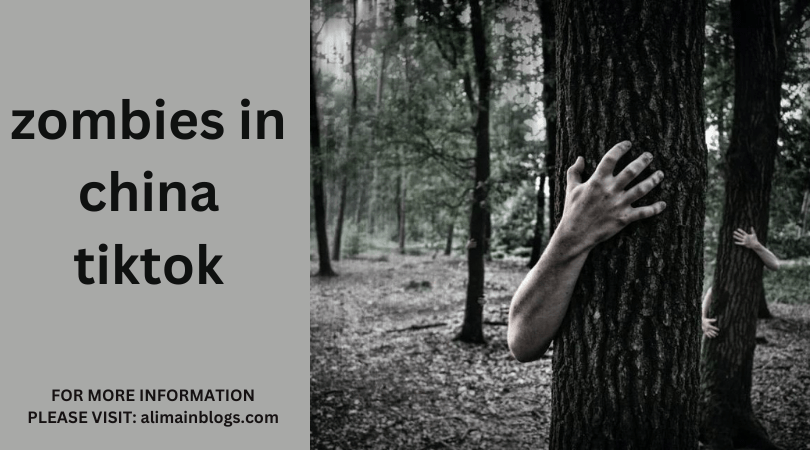Zombies in china TikTok. In recent years, TikTok has taken the world by storm, captivating millions of users with its short-form videos and creative content. However, beneath the catchy dance routines and lip-syncing, a peculiar phenomenon has emerged in China: the rise of “zombies” on TikTok. No, we’re not talking about the undead, but rather a growing subculture of users who are so engrossed in the app that it’s affecting their real lives.
The Allure of TikTok:
TikTok, known as Douyin in China, has become a digital playground where users can express themselves, share their talents, and connect with others worldwide. Its algorithm-driven content feed keeps users engaged, and the addictive nature of the app often leads to hours of scrolling and creating content.
The TikTok Addiction:

Like any social media platform, TikTok can be addictive. Users are bombarded with a never-ending stream of entertaining videos, making it challenging to put the app down. Some users have reported spending hours each day on TikTok, to the detriment of their work, studies, and personal relationships. This phenomenon has earned them the moniker “TikTok zombies.”
Escapism vs. Reality:
For many, TikTok offers an escape from the pressures of daily life. It provides a platform for creative expression and a sense of belonging in a community of like-minded individuals. However, as users become increasingly engrossed in the app, the line between escapism and reality blurs.
The Dark Side of TikTok Zombies:

While TikTok zombies may find solace in the app, there are real-world consequences to their obsession. Neglecting responsibilities, such as work or school, can lead to academic and professional setbacks. Additionally, excessive screen time can have adverse effects on mental and physical health, including sleep disturbances and decreased physical activity.
Isolation and Echo Chambers:
Another concern is the formation of online echo chambers. As users curate their content feeds based on their interests, they are exposed to a narrow range of perspectives. This can lead to polarization and a distorted view of reality, as users are less likely to encounter differing opinions or information.
Addressing the Issue:
Recognizing and addressing TikTok addiction is essential for the well-being of users. Here are some steps that can be taken:
- Self-awareness: Users should assess their screen time and the impact it has on their lives.
- Setting limits: Setting daily time limits for TikTok use can help prevent excessive usage.
- Balancing activities: Encourage users to balance their time on TikTok with other activities, such as exercise, hobbies, and social interactions.
- Digital detox: Taking periodic breaks from the app can help users reevaluate their relationship with TikTok.
- Educational campaigns: TikTok and relevant authorities should consider awareness campaigns highlighting the potential risks of excessive use.

TikTok has undoubtedly transformed the way we consume and create content. While it offers an incredible platform for self-expression and entertainment, it’s essential to strike a balance between digital life and the real world. The rise of “zombies” on TikTok in China serves as a cautionary tale, reminding us of the importance of moderation and self-awareness in the digital age. As the platform continues to evolve, it’s crucial for users to use it as a tool for enrichment rather than a source of distraction or isolation.
==================
FOR MORE INFORMATION PLEASE VISIT: alimainblogs.com
